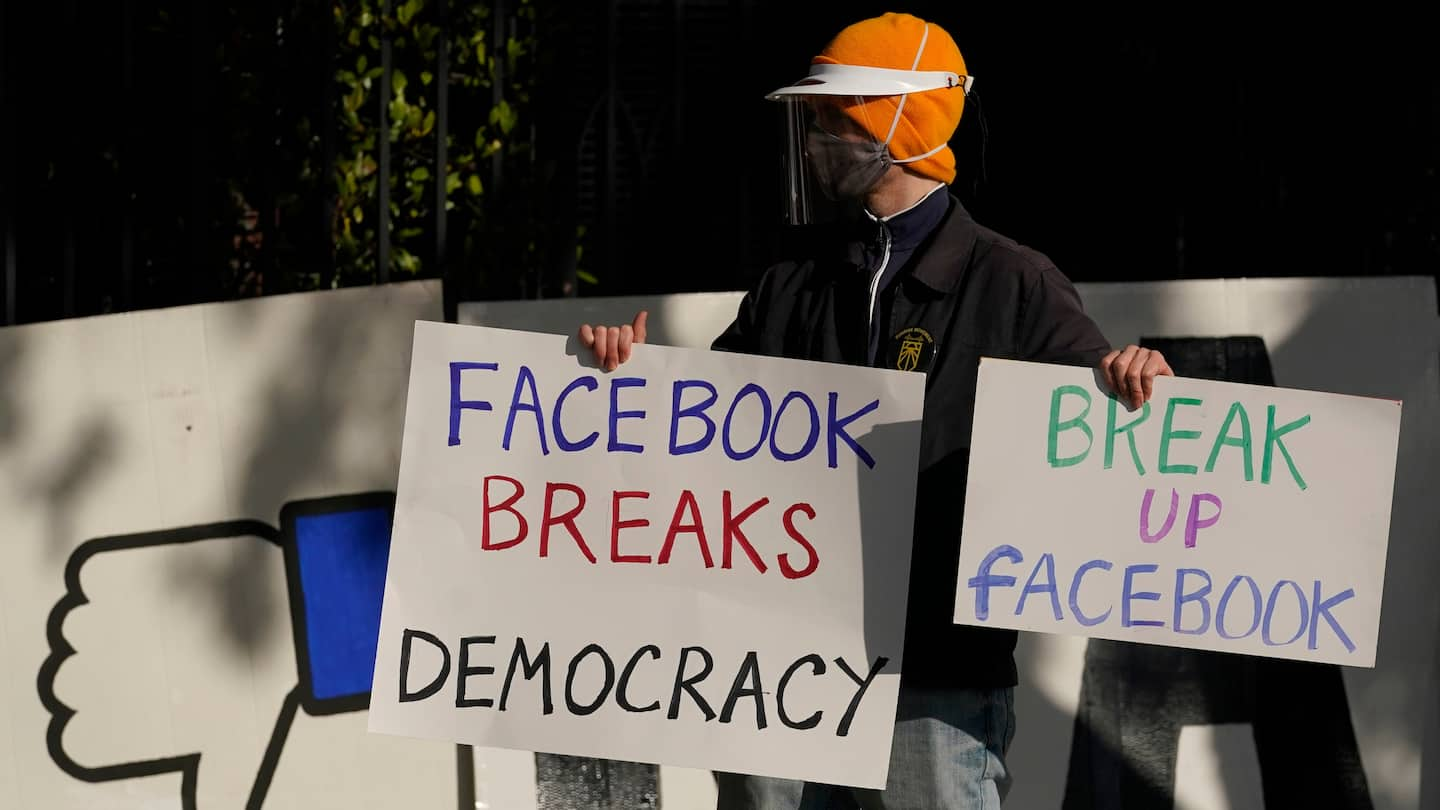Facebook outsources its decision to ban Trump to oversight board

The board, an idea first floated by Facebook CEO Mark Zuckerberg in 2018 and launched last year, is composed of 40 or so experts including a former prime minister, a Nobel Peace Prize laureate and several law experts and rights advocates. About a quarter of the members are U.S.-based. The board, which does not allow former Facebook employees to be members in what it says is an effort to preserve independence, has been criticized because it is still up to Facebook to approve its policy recommendations.
Calls for more regulation of social media companies — a subject of intense debate throughout the Trump era — have grown in the wake of the Capitol riots on Jan. 6. Facebook suspended Trump’s account on Jan. 7, the morning after a group of Trump supporters stormed the Capitol, which resulted in violent clashes and five deaths. While under intense external and internal pressure, the company said that Trump’s comments encouraging the riots to fight alleged election fraud were too dangerous given the ongoing potential for violence. Twitter, Snapchat, YouTube, and other social media companies also suspended Trump’s account, some permanently, and others with a temporary ban.
The decisions sparked debates about the power of technology companies to control free expression and their ability to censor the speech of the “leader of the free world.” They added more fuel to the effort within the United States to rethink Section 230, a key law that gives technology companies virtually unfettered ability to make content decisions without being held legally responsible for them. German Chancellor Angela Merkel renewed her arguments that governments should create rules of the road for social media companies, while officials in Poland said they were drafting laws to make it illegal for tech companies to take similar actions there.
Zuckerberg claims that he welcomes such regulation because he doesn’t think it is right for his company to be in the unilateral position of making such consequential decisions. The company funded the oversight board to demonstrate an alternative model and to remove some of the pressure.
Facebook said it would continue to suspend Trump’s accounts pending the board’s decision. The social network also asked the board to review its policies on world leaders, whose speech Facebook and other social media companies consider to be newsworthy or in the public interest, and therefore they are given more latitude to make inflammatory comments than everyday users.
“This is clearly the right decision,” said Evelyn Douek, a lecturer at Harvard Law School who had argued, along with other academics, that the oversight board should take up the case. “Had Facebook failed to send the case to the board, it would have suggested that even it wasn’t taking its oversight board seriously. Just waiting to see how [Zuckerberg] happened to feel about whether the Trump suspension should be made permanent is not a good model for how these kinds of important decisions should get made.”
Roger McNamee, a former Facebook investor and mentor to Zuckerberg who has become a strident critic, said that he expects that the board will ultimately reinstate Trump. “Given the court-like structure and quasi-legal approach of the Facebook oversight board, I would expect them to favor a reinstatement of Trump. That outcome would provide Facebook with the perfect cover to position the Trump ban as an appropriate response to a clear and present danger, not a policy to be applied broadly to world leaders.”
Aside from the Trump ban, the board is considering six cases out of 20,000 appeals that were submitted for potential review. Only one of the cases appears to be from a U.S. user. The other cases involve non-English language content posted about issues in France, Brazil, Azerbaijan and other countries.






